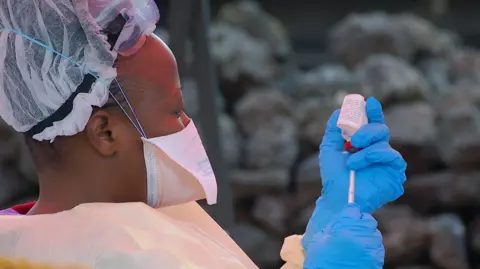Members of the World Health Organization (WHO) have finalized the text of a groundbreaking legally binding treaty aimed at enhancing the global response to future pandemics. The agreement comes in the wake of the disarray and competition for essential resources experienced during the COVID-19 pandemic.
The treaty emphasizes critical components such as the rapid sharing of data related to new diseases, enabling scientists and pharmaceutical companies to expedite the development of treatments and vaccines. For the first time, the WHO will oversee global supply chains for vital personal protective equipment (PPE) including masks and medical gowns.
Dr. Tedros Adhanom Ghebreyesus, WHO's director-general, hailed the agreement as "a significant milestone in our shared journey towards a safer world." He noted that this treaty is evidence of effective collaboration among nations, highlighting that multilateralism can still prevail even in a divided global landscape.
The legally binding pact was reached after three years of discussions and marks only the second international agreement of its kind in the WHO's 75-year history, the first being a tobacco control accord in 2003. It is scheduled for formal adoption at the upcoming World Health Assembly next month.
However, the United States, having previously withdrawn from the global health agency under former President Donald Trump, will not participate in this agreement, which becomes effective in 2026. The terms of the treaty obligate countries to ensure worldwide availability of pandemic-related drugs in future outbreaks. Manufacturers must allocate 10% of their production of vaccines, therapeutics, and diagnostics to the WHO, with another 10% provided at "affordable prices."
Additionally, member nations agreed on the transfer of health technologies to lower-income countries, contingent upon mutual agreement, potentially fostering local production of essential medical supplies during health crises. Nonetheless, this clause remains contentious, considering past grievances regarding vaccine hoarding by affluent nations during the pandemic.
Central to the treaty is a proposed Pathogen Access and Benefit-Sharing System (PABS), allowing for the swift exchange of data and collaboration among pharmaceutical companies, which will facilitate quicker drug development in response to future health emergencies.





















